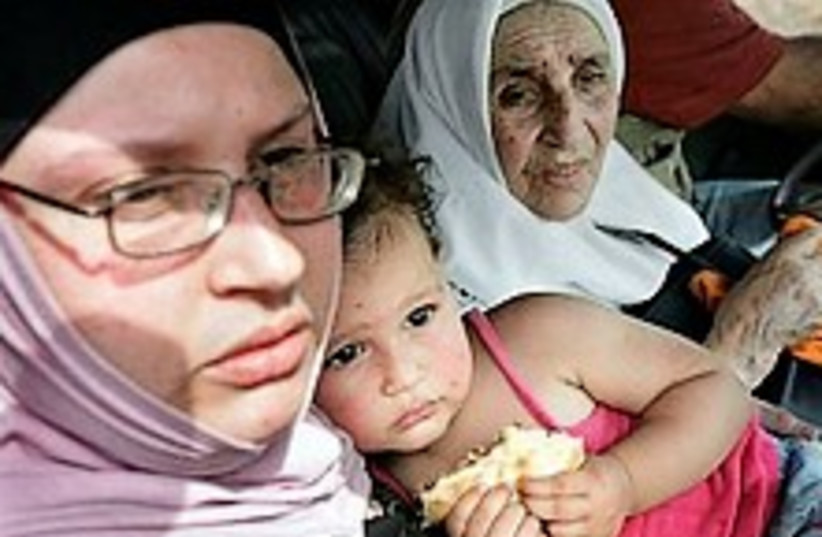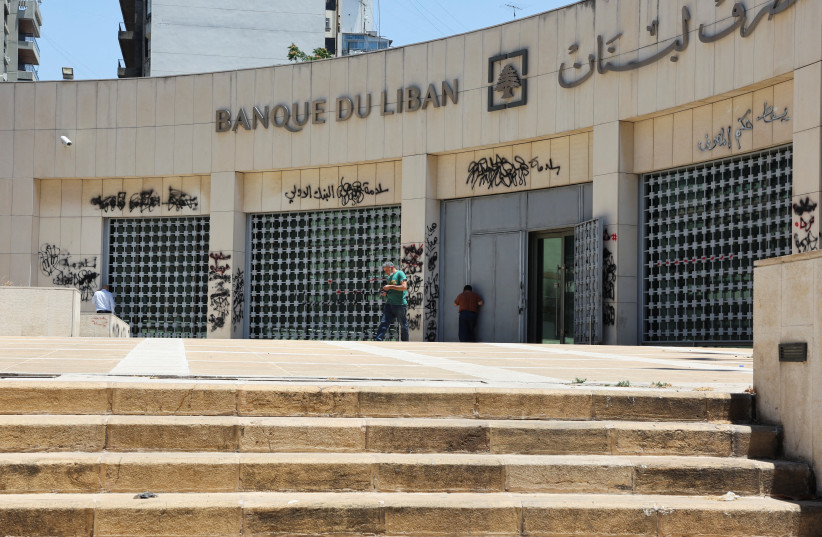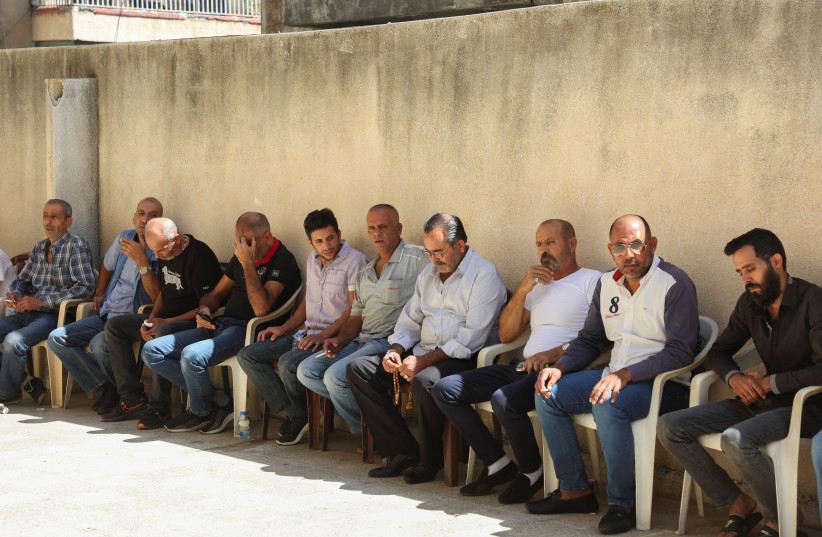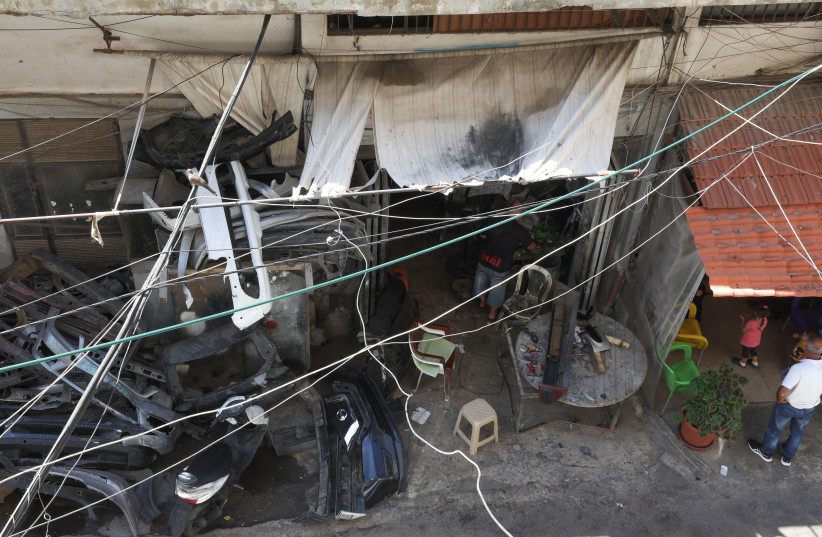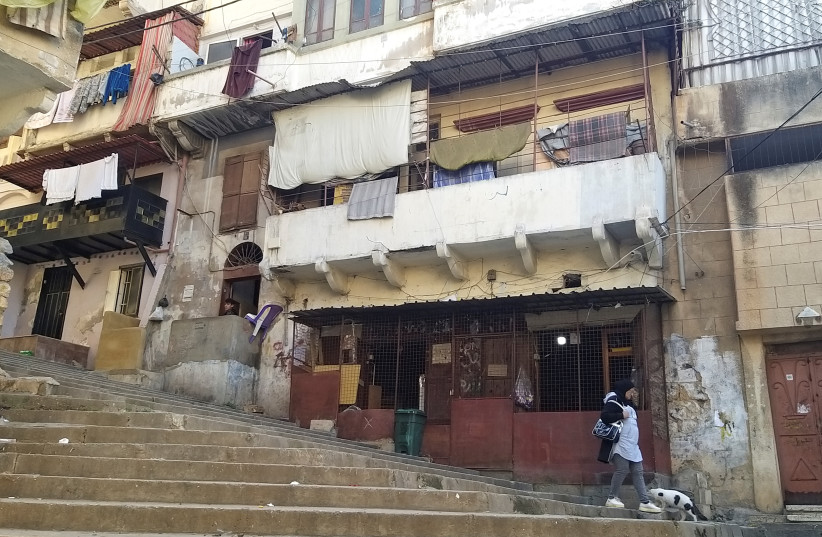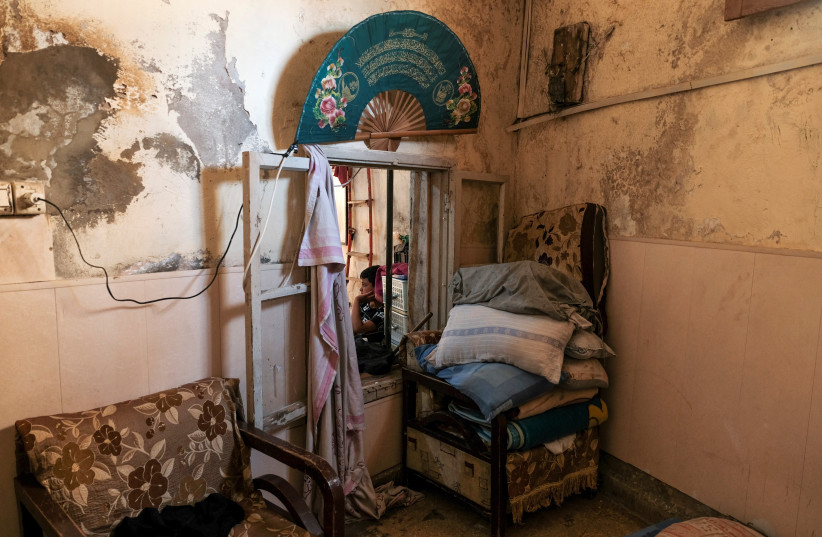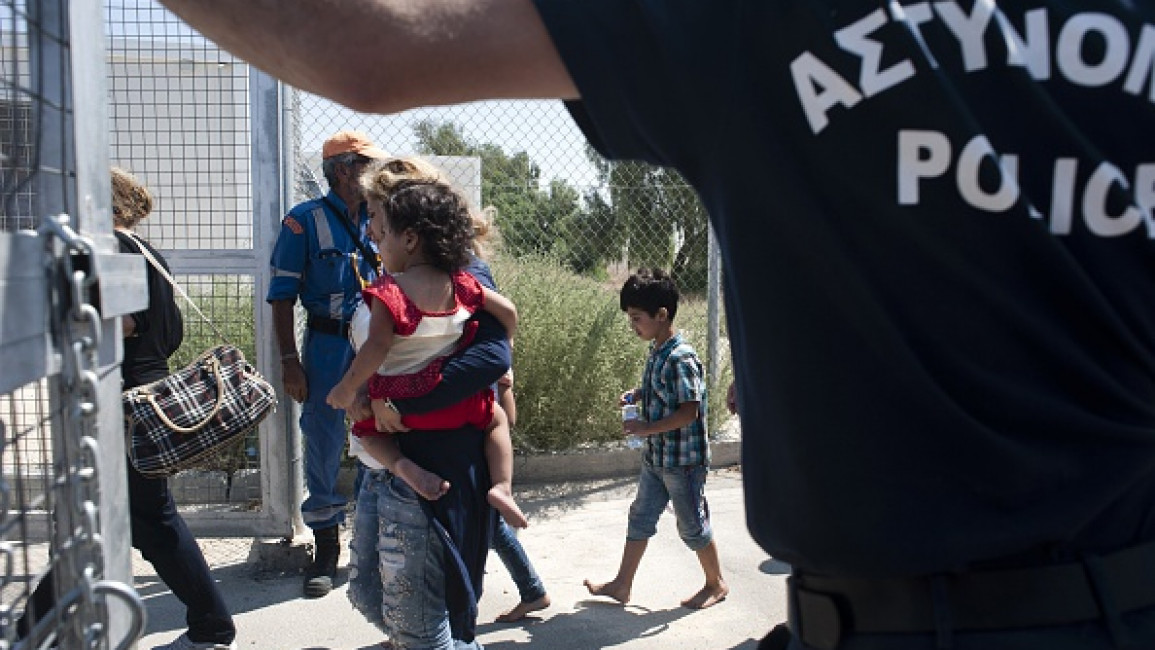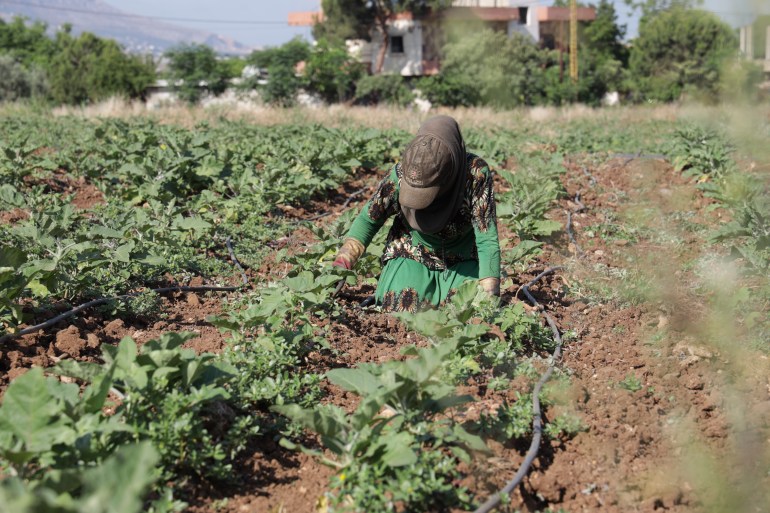Lebanon’s neo-liberal wheels sped to a dream future, but the past applies the brakes
Issued on: 10/07/2020

Text by:Leela JACINTO
For decades, Lebanon was a poster child of the triumph of private enterprise, its failure to close its civil war chapter overlooked in the hopes that prosperity would overcome the weakness of the state. But now that the current economic crisis has ripped the neo-liberal band-aid, can the Lebanese confront the wounds of the past?
The trains in Lebanon are an unfortunate metaphor for the state. They’re going nowhere. In fact, they haven’t budged since the national rail system ground to a halt during the 1975-1990 Lebanese civil war.
But they live in the public memory, an object of yearning and a testimony to the limitations of private enterprise. Artists put up shows offering sepia-tinted nostalgia of a heritage service. Newspapers feature profiles of “Lebanon’s last living train driver”. NGOs raise awareness, via songs and video clips, hoping it will lay the groundwork for a modern railway system linking cities as they did under Ottoman and colonial rule.
The wheels of the dream however are stuck, like the country’s trains going rusty in yards roamed by packs of wild dogs.
Meanwhile, Lebanon has a Public Transport and Railway Administration – or Office des Chemins de Fer et des Transports en Common (OCFTC) in French. The department is staffed by civil servants and has a budget of more than $8 million a year.
But the OCFTC’s only transportation offering is a fleet of public buses with a grand total of 35 vehicles officially running nine routes nationwide. In reality, many OCFTC bus drivers never get behind a wheel. Some confess they haven’t driven for years because they’re afraid of being attacked by the drivers of private minibuses, who dominate Lebanon’s public transport sector.
Transport regulation services, meanwhile, range from corrupt to non-existent. Red registration plates necessary for public transport vehicles are issued by the Transport and Vehicle Management Authority (TVMA) under the Interior Ministry. But they can be bought and sold or simply forged, with the number of red plate vehicles on the streets far exceeding TVMA-issued registrations.
But Lebanon nevertheless kept moving, its estimated 4 million citizens – famed for their enterprise, resilience and business acumen – getting where they needed to somehow. The rich and upper middle classes in their cars maneuvered traffic snarls, the less fortunate hailed minibuses or “service” – Lebanon’s celebrated shared taxis.
The money also flowed, with Lebanese banks – the historic “jewel” of the country’s economy” – offering high interest rates, attracting currency from local and regional depositors as well as the large Lebanese diaspora across the world.
“Little Lebanon” has long been the hailed liberal island in an autocratic Arab neighbourhood. After the civil war, it turned into a neo-liberal dream, the absence of effective state services, it was believed, could be filled by private enterprise, mirroring the post-Soviet zeitgeist of privatisation against the sin of “bloated” governments. International attention instead was focused on Lebanon’s precarious political equilibrium in a volatile region. The Lebanese, it was believed, could manage finance.
But the neo-liberal bubble has burst with deadly consequences. A spiraling economic crisis driven by a currency collapse is driving the state and its people into destitution. The Lebanese pound in recent days fetched more than 9,000 to the greenback on the black market, hyper-inflation has wiped meat off many Lebanese tables – including the army’s menu – and the desperation has triggered a spike in suicides.
Four Lebanese killed themselves last week in suicides apparently linked to the economic downturn.
In one case, a 61-year-old man shot himself before a Dunkin’ Donuts shop in the heart of capital, Beirut. A suicide note on his chest quoted a line from a popular song, “I am not a heretic. But hunger is heresy,” according to local media reports.
IMF as ‘defenders of widows and orphans’
Meanwhile talks between Lebanon and the International Monetary Fund (IMF) for an emergency bailout have stalled over the country’s inability to overhaul its entrenched patronage systems.
Two members of Lebanon’s negotiating team resigned last month, including one of the main architects of the government’s rescue plan. Alain Bifany, the top civil servant in the Lebanese finance ministry, told a news conference he “refused to be part of, or witness to, what is being done”.
A blame game has since dominated the Lebanese airwaves. But it hasn’t changed the facts on the ground. The collapse of talks was not due to differences between Lebanon and the IMF, the two negotiating parties. It was sparked by infighting within the Lebanese team, pitting civil servants against bankers and politicians over the extent of losses accrued by the banks, particularly Lebanon’s central bank.
The government’s assessment of central bank losses of around $50 billion – equivalent to more than 90 percent of Lebanon’s 2019 total economic output – was rejected by the central bank governor and some parliamentarians who maintained the amount was lower, according to the Financial Times. The IMF is more in line with Lebanese civil service figures, estimating losses of over $90 billion.
The collapse of IMF talks “is really disappointing. Basically, there is no plan B and it was the last hope to inject badly needed foreign currency which could offer a respite to the economy,” said Karim Emile Bitar, senior fellow at the Paris-based Institute for International and Strategic Affairs (IRIS) and director of the Institute for Political Science at St. Joseph University, Beirut.
While IMF bailouts, with the accompanying austerity and belt-tightening measures, tend to be unpopular across the world, the reverse is true in Lebanon, Bitar explained.
“The irony in Lebanon is that there’s such a degree of egregious corruption, political clientelism and kleptocracy that the IMF ended up being seen as defending the widows and orphans,” said Bitar in a phone interview with FRANCE 24 from Beirut. “This is one of the very few cases when the IMF is seen on the side of social justice against political elites in cahoots with private interests, banks and big depositors – the few who have over $10 million each [in bank deposits] and don’t want to contribute to a fair solution.”
The IMF bailout of around $5 billion in aid – after Lebanon for the first time defaulted on its sovereign debt – would pave the way for contributions from France, the EU, and Gulf states keen to rescue the country, but wary of pouring money into the morass.
But overhauling Lebanon’s entrenched patronage systems has proved to be easier said than done. “You would not think this would be difficult,” a senior European diplomat told the Guardian. “We have been begging them to behave like a normal state, and they are acting like they are selling us a carpet.”
Beautiful, but threadbare national carpet
The Lebanese national carpet though is a structurally threadbare tapestry of sectarian divides that has been historically managed – more often mismanaged – by feudal lords, warlords and their families and friends.
The carpet is ripped in times of war, but when the conflict ends – with an invariable division of spoils – the fabric of the nation is rarely strengthened. The country’s once warring elites and weary populace instead place their hopes on the magic of the market and the memory of the last bloodbath as a deterrent against future man-made disasters.
The roots of the current crisis lie in the 1975-1990 Lebanese civil war and the country’s failure to effectively close that historical chapter by addressing existential issues. The lessons of the past are important not just for Lebanon, but also for other countries in the region, such as Syria and Iraq, grappling with sectarianism and strife.
Lebanon’s brutal civil war between internecine sectarian groups backed by regional powers ended with the Taif Accord. The agreement reached in the mountainous Saudi city of Taif ended the fighting, but failed to effectively secure the peace. Instead of abolishing colonial era divide-and-rule policies, imperative for newly independent democracies, the parties merely updated the confessional equation.
Post-conflict justice and reconciliation was avoided in favour of national amnesia, encapsulated by the dictum “la ghalib, wa la maghloub” (no victors, no vanquished). The old system of zaims, or feudal overlords, providing protection and services in exchange for patronage survived with a few nomenclature tweaks: warlords became politicians, their funding sources switched to international business and finance, territories turned into ministries, and profiteering proceeded at usual unregulated levels.
>> Read more: Lebanon’s modern zaims, or feudal lords-turned-candidates
‘Mr Lebanon’ rebuilds corruption
The postwar healing focused on obliterating the visual signs of the conflict, particularly in Beirut with its bombed out buildings and pockmarked concrete carcasses.
But the national reconstruction, which was essentially a construction boom, soon became a symbol of the ailments infecting the state.
The country’s first postwar prime minister, Rafik Hariri, led a reconstruction that set the bar for politico-business enrichment. A businessman tycoon with close Saudi ties and dual citizenship, Hariri was the largest stakeholder in Solidere, a joint stock company that snagged most of his government’s reconstruction projects. Hariri also owned Lebanon’s largest private construction company, whose director was appointed the head of the Council for Development and Reconstruction, leading an architect to explain to the Washington Post that “the agency that the government used to control private development has now reversed its role.”
The fact that Hariri was not a warlord and had the drive and pockets to rebuild his country made him a popular figure in Lebanon. The corruption was evident – Hariri was called “Mr. Lebanon” – but it was tolerated as the price of Lebanon’s “reentry in the world” as the businessman-prime minister repeatedly proclaimed.
Critics of his rebuilding – particularly architects and heritage groups bemoaning the demolition of historic sites – were brushed aside. Downtown Beirut turned into a glitzy giant shopping mall financed by debt on the detritus of Lebanon’s past, a perfect symbol of the reemerging nation.

“We were sold a myth, that many had an interest in telling, that there was no need for a strong state, Lebanese resilience would always come on top. Today, those truly resilient are the oligarchs, ruling class and corrupt elites while average citizens are no longer capable of making ends meet,” said Bitar.
The construction and reconstruction boom was financed by borrowing, increasing the country’s debt-to-GDP ratio to recent peaks of nearly 150 percent, putting Lebanon in the world’s top three most-indebted countries. Interest payments, meanwhile, covered more than a third of the government’s annual spending.
But the banks, which own most of the debt, happen to be controlled by politicians and their families and friends who are sinking Lebanon.
Toward a zaim-less state
The “Mr. Lebanon” template for the state could be negotiated, with wry humour, by the affluent and upper middle classes. But it was never amusing for the less fortunate, who were driven to their communities – Hezbollah for the Shiites, modern day zaim-politicians for others – to survive. This entailed non-state patronage networks that often exploited the state.
The defunct railways was just one of several departments staffed by salaried cadres who secured jobs by wasta (influence) but did precious little. The system, at the very least, managed to prop a middle-class. But the current crisis has pulled the rug on that. “The country had a solid middle class. Today, the middle class has all but vanished. Many are thinking of leaving the country,” said Bitar.
Daily newsletterReceive essential international news every morningSubscribe
The Lebanese, acutely aware of the brewing problem, have been trying to do something about it. Grassroots movements have included the 2015 “You Stink” protest campaign against the garbage collection problem. In the 2018 parliamentary elections, a record number of civil society figures, under an umbrella coalition called Kuluna Watani, stood for the long-delayed polls. But while that fired up hopes on the campaign trail, it did little to change the post-election power dynamic since electoral rules ensured the survival of the old guard.
Anti-government protests once again broke out in October, with demonstrators demanding an end to the system. They got, instead, a change of government with Prime Minister Saad Hariri’s resignation, but nothing changed. Ministry posts are still doled out on patronage terms, the trains are still stuck.
The only silver lining of the current crisis is that this time it’s so serious, the Lebanese will not be hoodwinked by a bailout band-aid on the national wound.
“There must be a rejection of the old clientelist system. Many aspire to a new Lebanon based on citizenship rather than community affiliations,” said Bitar. “They want rights from the state without having to go begging to sectarian leaders begging for jobs, asking for money for medicine. Today, Lebanon needs a new social contract.”










